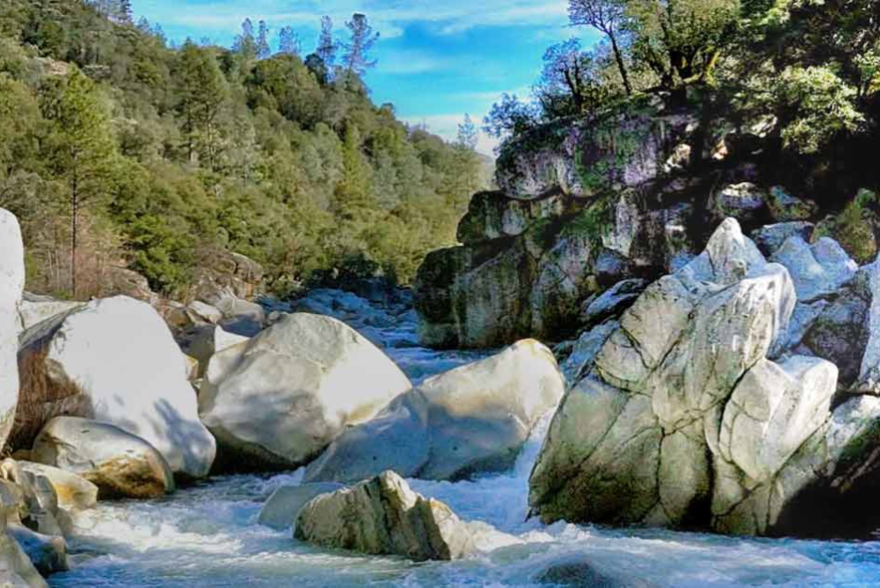Pilot project to study impacts of forest management on Yuba watershed


A healthier, thinner forest reduces fire risk significantly, and it also protects water quality and can improve water quantity. The Yuba watershed is about to reap all of those benefits, through a pilot project of the Forest Resilience Bond with Blue Forest Conservation and the World Resources Institute.
Written by: Yuba Water Agency
A healthier, thinner forest reduces fire risk significantly, and it also protects water quality and can improve water quantity. The Yuba watershed is about to reap all of those benefits, through a pilot project of the Forest Resilience Bond with Blue Forest Conservation and the World Resources Institute. The Yuba Water agency will support this effort with a $1.5 million cost-share contribution to help fund the planned restoration in the Yuba Project.
The agency’s board of directors today approved the cost-share contribution, which will help fund various forest management techniques and allow researchers to study the effects on the watershed. The pilot project protects 15,000 acres within the north Yuba watershed. The total restoration cost for the project is expected to be about $4.6 million.
“As we learned all too well last year with the Cascade Fire, the risk in the Yuba County foothills is far too great,” said YWA Vice-Chairman Randy Fletcher. “If this pilot project works as planned, it could mean really big things for our ability to reduce the fuel load by thinning the forest in a healthy, responsible way, thereby significantly reducing the fire risk to our residents, while bringing great benefits to the Yuba watershed.”
The U.S. Forest Service and National Forest Foundation, through funding provided by the Forest Resilience Bond, will deploy various forest management techniques, including different methods of forest thinning, meadow restoration, prescribed burns, and invasive plant treatment. Researchers will then monitor the impacts on water content and quality in the watershed, providing critical data to quantify exactly how forest health benefits watersheds, which could help spark additional investment in forest management techniques in the future.
The board unanimously supported this project due to its benefits for Yuba County’s water quality, quantity, healthier forest, air quality, economy and environment, Fletcher said.
“This is a private financing mechanism for forest health, which will be effective in increasing the pace and scale of treatment for this project and across the Yuba watershed,” said Blue Forest Conservation Co-Founder Zach Knight. “We hope this project can serve as a template for the entire state for funding forest restoration work.”
The Forest Resilience Bond deploys private capital to help make forests more resilient to changes in climate by investing in restoration projects that protect forest health and mitigate wildfire and drought risk. The pilot project will actually take place in Sierra County, but the planned activities will directly benefit Yuba County. If the pilot is successful, the planned second phase includes a much larger area, within the Yuba County boundary, near New Bullards Bar Dam and Reservoir.
“Yuba Water Agency continues to lead the way in all aspects of water challenges,” said Fletcher. “We are likely to be the first community to reach the state’s requirement for urban area levees to be certified at the 200-year level, and now we could be the first watershed in California to get healthy as well. The future of our county depends on water, and I continue to strategize and plan for that bright future.”
The current participants involved in the north Yuba watershed pilot project include:
-
U.S. Forest Service
-
Sierra Nevada Conservancy
-
National Forest Foundation
-
Gordon and Betty Moore Foundation
-
Brownstein Hyatt, Farber Schreck
-
World Resources Institute
-
The Rockefeller Foundation
-
Sierra Nevada Research Institute
-
Orrick
-
Encourage Capital
-
Natural Capital Project and Water in the West at Stanford